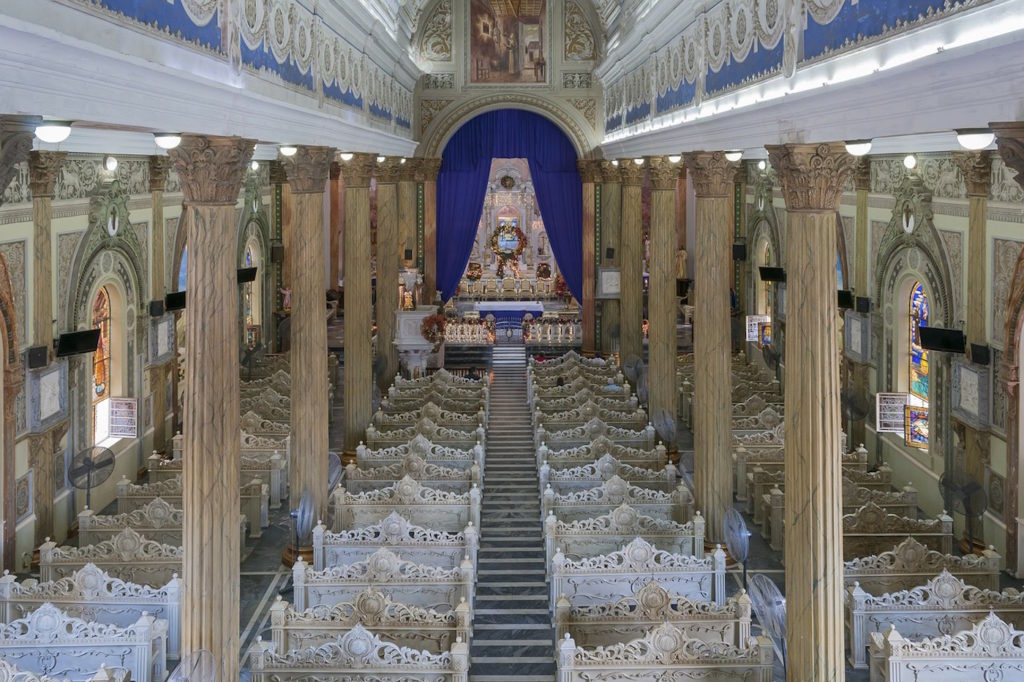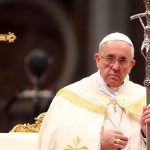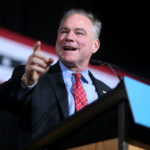One of history’s less palatable lessons is that dictatorial regimes can stay in power a long time. We can talk endlessly about humanity’s insuppressible yearning for liberty, but if a government retains its security apparatus’s loyalty and the will to use force, dictatorships can be very resilient in the face of popular discontent.
The good news is that such regimes can also collapse at the most unexpected moments. When that occurs, the political calculus changes immediately. Alongside questions about how to mete out justice to those who have done terrible things, these countries also face the challenge of restoring a functional economy and a constitutional order that promotes freedom and the rule of law.
The broken nation of Venezuela may be facing such choices in the near future. Many countries have now decided to recognize Juan Guaidó as Venezuela’s interim president, and this has emboldened opposition forces. In any case, the catastrophic economic conditions prevailing throughout the country mean that most people have nothing to lose by demanding that Nicolás Maduro’s socialist regime exit power sooner rather than later.
The obstacles to such a transformation are formidable. One is the regime’s grip on the armed forces, always a critical factor in Latin American politics. Then there is the active presence of several thousand Cuban advisors and Middle Eastern terrorist groups, such as Hezbollah. There is also strong Russian and Chinese support for Maduro. All this makes political change very difficult.
Even if Venezuela liberates itself, few Venezuelan institutions will emerge with much credibility after twenty years of socialism. Much of the judiciary succumbed to the regime’s control long ago, and there is not much of an independent media sector left. Plenty of business leaders have collaborated with the regime as well. The effects of two decades of endless liberationist and populist rhetoric on Venezuela’s political culture will also be hard to shake off. But there is one institution that has enhanced its credibility throughout Venezuela’s agonizing turmoil: the Catholic Church.
Start your day with Public Discourse
Sign up and get our daily essays sent straight to your inbox.The Church As the Citadel of Liberty
Venezuela’s Catholic bishops, priests, and religious have been downright heroic in their clear-eyed critique of the regime. Despite endless government provocations and even physical attacks on senior clergy, such as Cardinal Jorge Urosa, the bishops haven’t minced words when describing the reasons for Venezuela’s meltdown.
In a January 2017 pastoral exhortation, for instance, the bishops stated that the “fundamental cause” of Venezuela’s problems was that it was being subjected to a “totalitarian political system” in the name of “21st-Century Socialism,” despite what the bishops called the “utter failure” of “Marxist socialism in every country in which this regime has been installed.”
This blunt language has not been matched by the Vatican. More than one observer has commented that Venezuela’s Catholic bishops and the Holy See have often seemed at cross-purposes when dealing with the regime in Caracas.
The Vatican’s Secretariat of State has stated many times that the Holy See and the Venezuelan bishops are on the same page. On one level, that’s certainly true. Both have consistently called for new elections. Rome has also echoed the bishops’ denunciation of numerous human rights abuses and their call for the release of political prisoners.
But it is also true that many Venezuelans believe the Holy See has erred too much on the side of diplomacy and dialogue at the expense of firm and clear moral witness. This criticism has long been articulated by Venezuelan opposition leaders like Lilian Tintori and Henrique Capriles. “Where is the Pope?” asked Capriles (a self-described fervent Catholic whose maternal Jewish ancestry has made him a target of vicious anti-Semitic diatribes from regime activists) in a 2017 interview, with evident frustration.
Concern about the Holy See’s approach has been widespread throughout the rest of Latin America as well. This concern surfaced in an open letter to Pope Francis by twenty Latin American former heads of state and government, which was published in Spanish-language newspapers on January 6 this year.
The letter acknowledged the pope’s good faith efforts to promote dialogue between the regime and the opposition. Nonetheless, it politely pointed out that Francis’s December 25, 2018 “Urbi et Orbi” message downplayed the oppressive character of leftist governments in Venezuela and Nicaragua. The pope’s words, the letter claimed, were being “interpreted in a very negative way by the majority of Venezuela and Nicaragua.” Venezuelans are, the letter added, “victims of oppression by a militarized narco-dictatorship, which has no qualms about systematically violating the rights to life, liberty and personal integrity . . . and that has subjected them to widespread famine and lack of medicine.”
In short, it is the regime in Venezuela that is at the heart of the problem. It follows that the only thing to seek dialogue about is the terms of the regime’s departure. There is hope that Rome may now recognize this as the only end-game worth pursuing. In a recently leaked letter, Pope Francis declined Maduro’s request for the Holy See to serve, once again, as a mediator.
Should the Maduro government exit the stage in the near future, the Church’s role in Venezuela will change. On one level, it will work to promote reconciliation, both as a matter of Christian principle and to heal the deep fractures in Venezuelan society exacerbated by the regime’s frenzied exaltation of envy. But many Venezuelans will also be looking to the Church as one institution that they trust for guidance on how to rebuild a shattered country.
It’s not the Church’s responsibility to promote any one political model or economic system. Nor is it the clergy’s place to assume the role of legislators or policymakers. These, as Vatican II stressed, are primarily the responsibilities of laypeople.
The Venezuelan Church can, however, point to Catholic social teaching as providing a body of principles that can facilitate the emergence of societies that take liberty and justice seriously. The encyclical that can provide the most helpful guidance for Venezuela is John Paul II’s Centesimus Annus (1991).
Venezuela after Maduro
One of the burning questions that Centesimus Annus had to answer was which paths should be followed by those nations emerging from the wreckage of Communism. Venezuela will be facing a similar situation if it evicts the Maduro dictatorship.
The beauty of Centesimus Annus is that it underscored that the way forward to free and just societies goes far beyond replacing economic collectivism. Embracing the habits and institutions of “a ‘business economy,’ ‘market economy’ or simply ‘free economy,’” the encyclical stated, is essential. But healing Venezuela from the evil of socialism will also involve rethinking politics in general and democracy in particular. In Latin American liberationist and populist discourse, the idea of democracy being bounded by the rule of law, constitutionalism, and natural law is invariably dismissed as “bourgeois ideology.”
Centesimus Annus certainly specified that widening participation in the political process can be a good thing. It also stressed that democracy untethered from the truths known through reason easily degenerates into majoritarian tyranny and can succumb to the lie that freedom and relativism go hand in hand. After being saturated by the emotivist and violent rhetoric of Latin American populism for years, Venezuelans need to hear this message.
Ensuring that such ideas take root, however, will require transformation in a realm of life more important than the economy and the political sphere. This concerns culture.
If there is a social model operative in Centesimus Annus, it is one in which the economy, politics, and culture each shape and inform the workings of the others. Premonitions of this model can be found in the work of the late Michael Novak. Just as Novak gave increasing prominence to culture in his later writings, so too does Centesimus Annus underscore culture’s primary place in this trinity.
Think about a society based on a culture that exalts the emotions over rationality, that espouses utopian schemes for perfectibility in the here-and-now, and that reduces people to radical autonomy or subsumes them into an anonymous collective. Then compare this to a culture that sees human beings as simultaneously individual, social, free, responsible, fallible, creative, able to know truth through reason, and capable of greatness―but that does not imagine that humans can build heaven on earth.
These two cultures would facilitate very different economic and political arrangements, precisely because they reflect different conceptions of human nature—and ultimately, I would add, of God. This is why Centesimus Annus famously stated that socialism’s fundamental error is its mistaken view of human nature. That’s one reason why, as the late Cardinal Jean-Marie Lustiger was fond of saying, it is ultimately culture that drives history—not economics. If the Venezuelan Church does nothing but stress this insight, it will make a powerful contribution to a post-Maduro Venezuela.
That said, the road from socialist serfdom will not be easy in Venezuela. The experience of post-Communist Eastern Europe and the former USSR tells us that many things can and will go wrong. Not everyone will be brought to justice. Desperately needed economic reforms will take time to have positive effects in a country that is short on patience and full of rage.
But if there is one thing that millions of Venezuelans know as a result of the suffering, hunger, and death inflicted by two decades of Latin American leftist populism, it is that you cannot build a society on lies. Systematic falsehoods about economics, the nature of freedom and equality, the state, and human nature don’t produce flourishing societies. That happens to be a central message of Centesimus Annus, one that reflects Catholic social teaching at its best. The truth, it turns out, really does set us free. It’s also the only path toward a truly free Venezuela.
¡Viva Venezuela libre!














